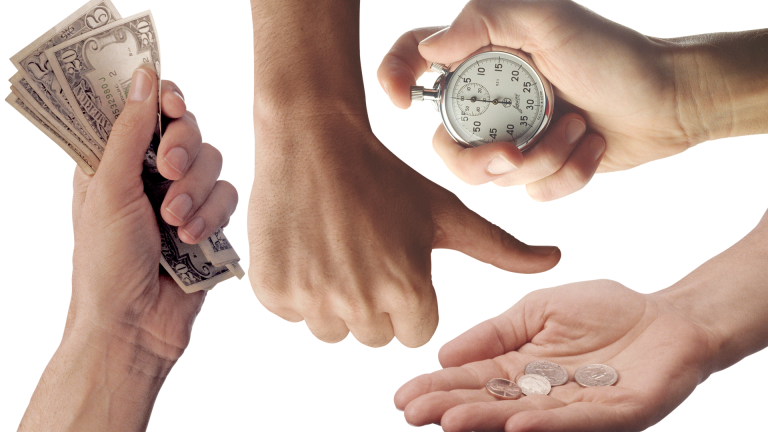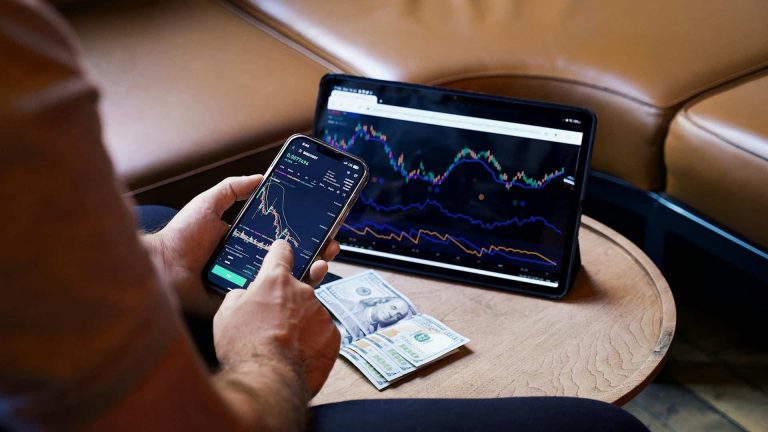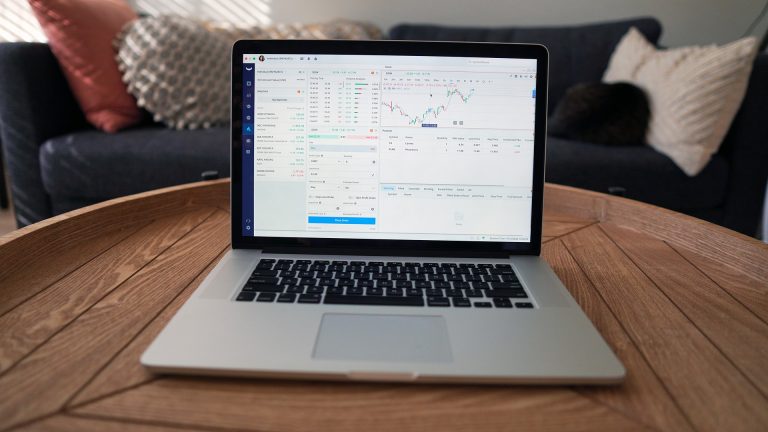How do ETFs work?
ETFs are managed by investment companies, which use them to track the performance of specific indexes, commodities, bonds, or other assets. When you buy an ETF, you are essentially buying a stake in the underlying basket of assets.
You trade ETFs on stock exchanges, just like regular stocks, which means that their price can fluctuate throughout the day as demand for the underlying assets changes. Brokers charge commissions on every transaction when you buy or sell an ETF, just like buying or selling a stock.
What are the benefits of investing in ETFs?
There are various benefits to investing in ETFs:
- ETFs are usually cheaper to own than mutual funds. It’s because they have lower overhead costs.
- You can trade ETFs throughout the day on a stock exchange, which means that you can take advantage of changes in the underlying basket of assets immediately, without waiting for the end of the day like you would with a mutual fund.
- ETFs offer exposure to a wide variety of asset classes. For example, you can find ETFs that track stocks, bonds, commodities, and even foreign markets. It gives investors the ability to diversify their portfolios without owning multiple different types of investment products.
Risks of investing in ETFs?
There are risks associated with investing in ETFs:
- ETFs can be volatile. They are traded on stock exchanges, and their prices fluctuate daily.
- Some ETFs may be less liquid than others. It may be challenging to find a buyer for your shares, or you may have to accept a lower price than you paid when selling.
- ETFs may not perform as expected. They are designed to track specific indexes, commodities, bonds, or other assets. If these underlying assets do not perform as well as expected, the ETF will likely follow suit.
What does it mean for an ETF to settle?
The trade does not settle when you buy or sell an ETF. It is because the ETF itself does not own the underlying assets. Instead, it uses a “Creation Units” system to track the underlying basket of assets.
Creation Units are baskets of the underlying assets that authorized participants to hold. When trading an ETF, you buy or sell these Creation Units. The trade settles when the Creation Units are exchanged between the buyer and the seller.
The settlement date is when the trade is settled, and shares are delivered to the buyer. It takes two business days after the trade is executed for most ETFs. However, some ETFs may have different settlement schedules. For example, some ETFs settle on a same-day basis, while others may have more extended settlement periods.
How long does it take for an ETF to settle?
Most ETFs settle within two business days after the trade is executed. However, some ETFs may have different settlement schedules. For example, some ETFs settle on a same-day basis, while others may have more extended settlement periods.
What are the implications of settling an ETF?
The settlement date is crucial because it determines when you will receive the ETF shares. If you need the funds from the sale immediately, you may want to consider selling a different type of investment that settles more quickly. On the other hand, if you are comfortable waiting a few days for the cash, then an ETF may be a good choice.
The price of an ETF can change between the time you place your order and the settlement date, which means that you could pay more or receive less than you expected. If this is a concern, you may consider using a limit order to ensure that you get the price you want.
In conclusion
ETFs have several benefits and risks that you should consider before investing. They offer exposure to various assets but can be volatile and less liquid than other investments. It is essential to understand the settlement process before investing in ETFs.




